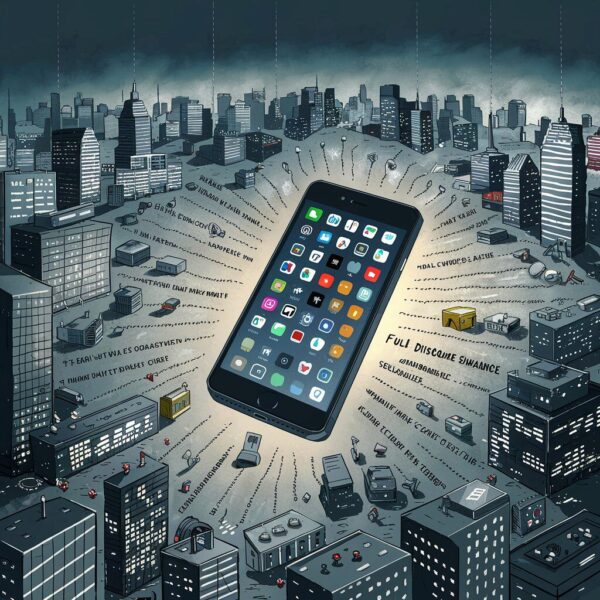The Smartphone Confession Booth: Why We Share More on Our Phones

Imagine a small, quiet booth where revealing your deepest secrets feels natural and comfortable. This booth exists not in a secluded corner of a bustling city, but rather sits comfortably in your pocket – it’s your smartphone.
A study by Wharton professors Shiri Melumad and Robert Meyer reveals a fascinating truth: we tend to be more self-disclosing when using our phones compared to traditional computers. This means we share more personal information, thoughts, and experiences on our tiny screens than on our large desktops.
But why this shift? The answer lies in a unique combination of two key factors: comfort and focus.
Our smartphones have become extensions of ourselves, constantly with us and used for deeply personal activities like messaging loved ones. This constant presence fosters a sense of psychological comfort, making us feel more at ease sharing personal information.
Secondly, the smaller screen and keyboard of smartphones force us to narrow our focus. This concentrated attention on the immediate task, the act of sharing itself, inadvertently facilitates deeper self-disclosure. We get absorbed in the moment, potentially bypassing our usual filters and reservations.
This increased self-disclosure on smartphones has several implications for business: customer reviews that delve deeper into personal experiences, not just factual product details. This personal and intimate aspect can be highly persuasive, influencing purchase decisions more than standard reviews. Businesses can utilize this knowledge to encourage mobile-based reviews, fostering a potentially more authentic and engaging communication channel with their customers.
But it’s important to note that this “smartphone confession booth” effect isn’t without limitations. While smartphones may encourage deeper self-disclosure, this doesn’t automatically translate to truthfulness or accuracy. It is still crucial for consumers to approach online information with a critical eye, regardless of the device used to generate it.
The way we interact with technology continues to evolve, shaping not just how we communicate, but also what we choose to share about ourselves. Understanding the unique psychology of smartphone use can help us both as individuals and businesses navigate the ever-changing digital landscape with greater awareness and understanding.
Read the full study:
Full Disclosure: How Smartphones Enhance Consumer Self-Disclosure
Shiri Melumad and Robert Meyer. Journal of Marketing 2020, Vol. 84(3) 28-45 American Marketing Association 2020 Article reuse guidelines: sagepub.com/journals-permissions DOI: 10.1177/0022242920912732 journals.sagepub.com/home/jmx


